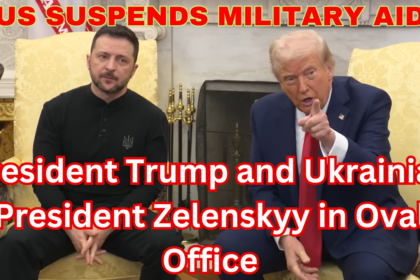The beautiful peninsula of Crimea has once again become the center of heated discussions on the global stage. Recent statements by U.S. President Donald Trump have stirred the pot, with claims that Ukraine’s President Volodymyr Zelenskyy is prolonging the conflict by refusing to cede Crimea to Russia. This ongoing debate has reignited interest in the region, raising questions about its future and its role in international politics.
Why Crimea Matters
Located on the northern coast of the Black Sea, Crimea is a region rich in history and cultural significance. For centuries, it has been a melting pot of different cultures and ethnicities. Its strategic location has made it a coveted prize for major powers throughout history. Today, it stands as a symbol of the ongoing conflict between Ukraine and Russia, with its status remaining a contentious issue on the international stage. 🗺️
The Trump-Zelenskyy Debate
Trump has recently criticized President Zelenskyy for maintaining a hard stance on Crimea, suggesting that Ukraine’s insistence on its return is prolonging the “killing field” in Ukraine. This statement has sparked a wave of reactions, with many questioning the implications of such a concession. While Trump claims “nobody is asking” Ukraine to recognize Crimea as Russian, the reality is far more complex. The international community remains divided, with Western nations largely supporting Ukraine’s sovereignty over Crimea. 🌐
Crimea’s Role in Peace Talks
The status of Crimea has often been a red line in peace negotiations between Ukraine and Russia. The region was annexed by Russia in 2014, a move that is not recognized by most of the international community. Zelenskyy has maintained that any peace talks must include the return of Crimea to Ukraine, a stance that is supported by many of Ukraine’s allies. However, this condition has been a significant sticking point, preventing meaningful progress in diplomatic discussions. 🕊️
The Broader Implications
The situation in Crimea is not just a regional issue; it has broader implications for international law and order. The annexation of Crimea has challenged the principles of territorial integrity and sovereignty, principles that form the bedrock of international relations. How this situation is resolved will have ramifications for future conflicts and the global balance of power. It is a reminder of the delicate nature of international diplomacy and the importance of adhering to agreed-upon norms and treaties. ⚖️
Conclusion: The Road Ahead
The future of Crimea remains uncertain, with its fate hanging in the balance of international diplomacy. As leaders like Trump and Zelenskyy continue to navigate this complex issue, the world watches closely. The region’s history, strategic importance, and cultural richness make it a key player on the global stage. Moving forward, finding a peaceful resolution to the Crimea question will be crucial for stability in the region and beyond.
The situation in Crimea serves as a poignant example of the challenges facing our world today, reminding us of the importance of diplomacy, dialogue, and cooperation in resolving conflicts. As this geopolitical chess game unfolds, the hope is that peace will prevail, ensuring a prosperous future for the people of Crimea and the international community. 🌍✌️
#Crimea #UkraineConflict #GlobalDiplomacy













